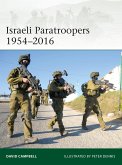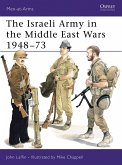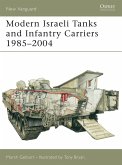Abba Ahimeir (1897 -1962) writer, journalist and historian began his public life as a socialist, but subsequently moved toward the rightward extreme of Zionist ideology. One of the earliest opponents of the British Mandate, in 1930 he founded a radical organization called Brit Habiryonim (the Union of Zionist Rebels). This was a clandestine, self-declared fascist faction of the Revisionist Zionist Movement (ZRM) in Palestine whose official ideology was Maximalist Revisionism, an ideology for which Ahimeir is now most well-known.
Ahimeir's career as a political activist came to an early end, when he was arrested in connection with the murder of the Labour Zionist leader, Chaim Arlosoroff. Although acquitted, Ahimeir nonetheless went to prison for his involvement as a political activist. This is the first intellectual biography of one of the most influential figures on the Zionist Right. Based on much unseen primary source material from the Ahimeir archive in Ramat Gan and the Jabotinsky Institute in Tel Aviv, as well as Ahimeir's newspaper articles, the author provides a rigorous analysis of Ahimeir's ideological development. The book positions him more accurately within the contexts of the Israeli right and the Zionist movement in general, updates common misunderstanding about this period of history and revises Israeli collective memory.
Ahimeir's career as a political activist came to an early end, when he was arrested in connection with the murder of the Labour Zionist leader, Chaim Arlosoroff. Although acquitted, Ahimeir nonetheless went to prison for his involvement as a political activist. This is the first intellectual biography of one of the most influential figures on the Zionist Right. Based on much unseen primary source material from the Ahimeir archive in Ramat Gan and the Jabotinsky Institute in Tel Aviv, as well as Ahimeir's newspaper articles, the author provides a rigorous analysis of Ahimeir's ideological development. The book positions him more accurately within the contexts of the Israeli right and the Zionist movement in general, updates common misunderstanding about this period of history and revises Israeli collective memory.









